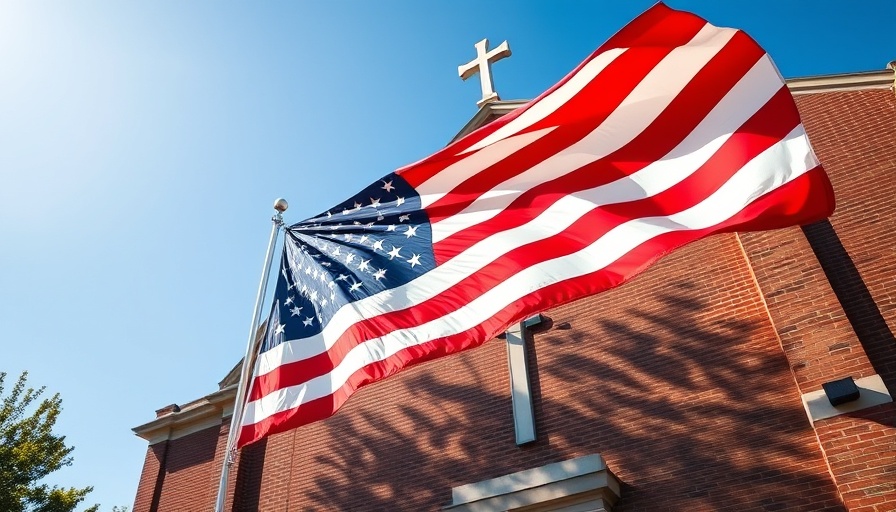
Unpacking the Roots of Christian Nationalism
The recent assassination case in Minnesota involving Democrat Melissa Hortman has sent shockwaves through the political community, bringing to light the troubling connections between the alleged shooter, Vance Boelter, and the extreme fringes of Christian nationalism. A movement defined by its belief that America should be governed according to Christian principles, Christian nationalism has dramatically influenced U.S. politics over the past few decades. Analysts now consider understanding this ideology crucial in the wake of violent attempts against lawmakers.
Vance Boelter: A Personal Journey to Extremism
Boelter’s religious transformation reportedly began at the young age of 17, influenced by discussions of God at his workplace. This preacher’s path, which included leadership roles in evangelical organizations, showcases how individual experiences can lead to radical ideologies. Experts suggest that Boelter’s notions of righteousness paint a vivid picture of how deeply embedded his beliefs are in fringe theological perspectives.
The Charismatic Christianity Connection
Charismatic Christianity is a broad movement encompassing a multitude of beliefs centered around modern supernatural experiences, such as speaking in tongues and prophecy. A notable subset, known as the New Apostolic Reformation (NAR), broadly seeks to infiltrate liberal institutions, viewing them as degenerate and anti-Christian. This belief system bolsters the idea that a secular state is a threat to their vision of a Christian nation, and Vance Boelter embodies this extremist viewpoint, according to scholars like Michael Emerson.
A Broader Context: Historical Perspectives on Violence and Religion
This incident adds to a growing conversation about the intersection of religion and political violence in America. Historically, various religious movements have used violence to achieve what they perceive as divine ends. Comparisons have been drawn between extremist acts in the name of faith across different religions, raising the necessary question of how far ideology can push an individual towards violence.
Counterarguments: The Misconceptions Around Christianity and Nationalism
It’s important to note not all individuals who identify with Christianity or nationalism share such extremist viewpoints. Many Christian leaders denounce violence and emphasize love and forgiveness. This nuance is desperately needed in discussions that otherwise categorize millions based on the actions of a few.
The Role of Political Rhetoric in Radicalization
Political rhetoric plays a significant role in how individuals may interpret their religious beliefs in the political sphere. The recent rise of populist rhetoric has empowered groups like Christian nationalists, often blurring lines between religious faith and political ideology. This phenomenon raises critical questions about responsibility among public figures and the media in inciting or calming radical sentiments.
Moving Forward: Strategies for Mitigation and Understanding
To address the radicalization phenomena, experts suggest several strategies, including implementing educational programs that foster critical thinking and promote interfaith dialogue. It’s essential for leaders across industries and sectors to work collaboratively towards solutions that emphasize shared values over division.
Understanding the implications of Boelter's affiliations is crucial for mitigating potential threats from radical ideologies in the future. As society continues to grapple with the balance between freedom of belief and the dangers posed by extreme views, ongoing dialogue and education remain vital.
 Add Row
Add Row  Add
Add 




Write A Comment